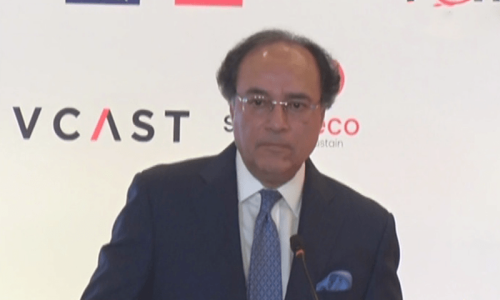LAHORE: Growers are losing billions to the powerful sugar manufacturers from south Punjab and Sindh because of reluctance of provincial governments to enforce the law requiring the mill owners to pay ‘quality premium’ to them on the recovery of higher than the base-level sucrose content of 8.7 per cent during any given crushing season.
The provincial Sugar Factories Control Act, 1950 says the “provincial government may direct the factories to pay quality premium at the end of the crushing season at such rate as may be specified by the provincial government in proportion to the sucrose recovery of each factory in excess of base level sucrose contents determined by the provincial government”.
The quality premium was introduced in the early 1980s to encourage farmers to use better quality cane varieties to increase the sucrose content of their crops. The other reason behind introduction of quality premium was to guarantee cane price fairness by ensuring that the growers get paid price on the basis of the sucrose content of their crop, and not just on the basis of its weight.
Quality premium is seen as additional price given to farmers for their higher sucrose content.
“Since the minimum sugarcane support price is determined by the provincial governments on the basis of the base sucrose content level, it is logical that the farmers who grow better quality cane varieties with higher than the base level sucrose content should be compensated for their better recovery levels,” argued a grower from Rahim Yar Khan, who spoke to Dawn on the condition of anonymity.
According to him, the sugar mills in Sindh and south Punjab are recovering up to 11.5-12pc sucrose against the base level content of 8.7pc. “This means they [millers] can make a lot more sugar from the same amount of cane than their competitors who are recovering the base level content but are not paying us for that. What incentive do we have to spend more on crop and work harder if we don’t get compensated for that?”
That is not the only way growers are losing money to the sugar mill owners. The delay of two months or more in the commencement of the cane crushing by the millers also means that the farmers would find their land occupied by sugarcane for a much longer period, depriving them of the chance to grow any other high-value crop, like wheat, and increasing their costs. On the other hand, the benefit of high sucrose recovery is accrued to the mill owners who remain unconcerned with the loss of valuable Rabbi crops suffered by the growers that could have been cultivated on a very large area of land which becomes available when the crushing season starts on October 1, as provided in the law.
The law demands millers to start fresh harvest from October 1, but they usually delay it till the end of November or even to the middle of December. This helps them extract higher sucrose from the cane at the expense of the farmers.
Another grower, from Bahawalnagar, said neither Punjab nor Sindh was enforcing the quality premium law despite a judgement by the Supreme Court of Pakistan announced in March 2018. Dismissing an appeal filed by the Army Welfare Sugar Mills and others against a 2003 Sindh High Court decision, a three-member SC bench comprising Chief Justice Mian Saqib Nisar, Faisal Arab and Sajjad Ali Shah had declared the quality premium constitutional and legally enforceable.
The court had also directed (the provincial governments) that “in future notification as per past practice for payment of ‘quality premium’ should (also) be issued along with the notification of fixation of the minimum procurement price of sugarcane and the same shall be paid to the growers not later than two months after the crushing season comes to an end”.
Nevertheless, neither of the two provincial governments have taken any step to ensure compliance of the order. The farmer from R Y Khan wondered: “The sugar mill owners from Sindh as well as south Punjab have strong political connections and clout over sugar policy making. In Sindh they are part of the Pakistan People’s Party. Those from south Punjab are occupying important positions in the ruling party [PTI] as well as its government in Punjab and in the Centre. How can you expect any government to make policies that could hurt financial interests of this powerful sugar mafia?”
The court had noted in its judgement that the level of sucrose content extracted from sugarcane depended on a number of factors, such as the variety of sugarcane used as a seed, the soil conditions, the growers efforts and the efficiency with which the sugarcane is crushed in the mills. Thus, enforcement of quality premium is recognition given to the contribution of the growers by sharing with them the fruits of higher sucrose content.
It adds:“… its (quality premium’s) denial would be unfair and confiscatory in nature as it amounts to disregarding the contribution of the growers in achieving a higher level of sucrose content, which directly results in higher sugar production.”
Published in Dawn, October 5th, 2020













































